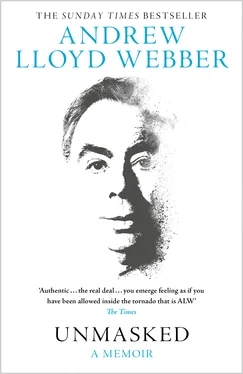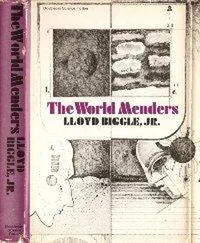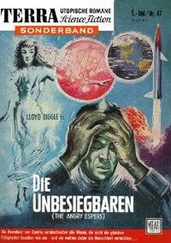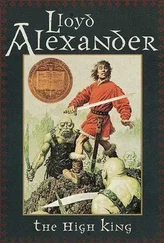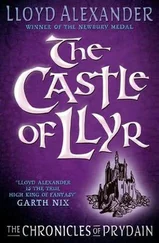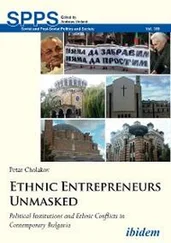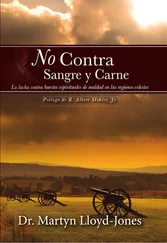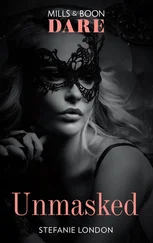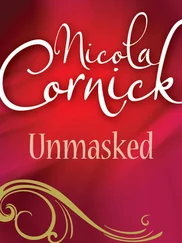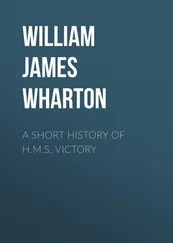It struck me there was only one publisher for Auntie. Desmond Elliott. I was right. Soon after Vi’s leg was reset, she had a deal set with Desmond’s Arlington Books. Vi had broken her leg very badly and her stay in hospital through that hot summer was a long one. I enlisted my friend David Harington to help Vi concoct chapters like “Game Meat” and we did keep Vi merry as she created the character of Rodney Spoke, whose “graceful hand has been behind so many of London’s leading restaurateurs.” The book eventually was published in 1970 and I spent most of that year and a few years after praying that nobody discovered that Rodney was my aunt or that I had anything to do with it.
THE REVEREND MARTIN SULLIVAN, the New Zealand-born dean of Sir Christopher Wren’s masterpiece St Paul’s Cathedral, was not averse to publicity in the name of Jesus. He inaugurated a summer youth festival called Pop-In at St Paul’s by abseiling down the cathedral’s West Front. Traditionalists were not keen. There are historical connections between St Paul’s School in West London and the cathedral and Rev. Sullivan thought Joseph would be a perfect follow-up to his summer high jinks. Not a few eyebrows shot up at the announcement that a pop cantata was to be performed on November 9 in the cathedral hailed as one of the better consequences of the Great Fire of London.
Unfortunately when Sir Christopher designed his iconic dome he did not have a rock drummer in mind. The St Paul’s Cathedral echo is a good twenty seconds long. And there’s more than one of them, as anyone who has climbed the steps to the Whispering Gallery at the rim of the dome will testify. In short, St Paul’s Cathedral isn’t top of the venue list for a highly public performance of a piece which much depends on hearing the words. So there were a lot of heads buried in the words in the programme when the Joseph Consortium, as our massed forces were now named, gave the first performance of Joseph Mark 2.
The dome did a great job of masking the Joseph Consortium’s rhythmical deficiencies and once again the overwhelming feeling was joyous. There was a good review from Ray Connolly, the Evening Standard music critic whom we had come across when we were unsuccessfully trying to propel their Girl of the Year Ross Hannaman into the stratosphere. The sadly now defunct satirical Peter Simple column in the Daily Telegraph ran a story about a new pop cantata “Mr Moses and the Amazing 200ft Cybernetic Funcalf,” music by old Etonian Adrian Glass-Darkley, which neatly pulled the rug from under any serious thoughts of a sequel in this direction, at least for a bit. When we did fleetingly flirt with the Moses story, we thought of starting it with the tune that I had scrawled on a table napkin in Carlo’s Place. What was to become the big Jesus Christ Superstar theme had first-draft words that went “Samuel, Samuel, this is the first book of Samuel.” We became friends of Martin Sullivan, who hugely encouraged us to choose another biblical story as our follow-up. In fact he was the first of many who suggested the story of Jesus, but for the moment the launch of the Joseph album blanked out thoughts of a successor.
DECCA’S DECISION TO RELEASE Joseph in the New Year meant that the run-up to Christmas churned through agonizingly slowly. I increasingly panicked that if Joseph didn’t strut the stuff I would have to get a job. It was time to make plans. My mother had got to know a feisty fun ex-model called Pam Richards who had a flat in the block next door. She lived on her own, but seemed to have a bevy of friends of whom one of the younger was an aspiring heartthrob pop star called David Ballantyne. David’s singles were all over the pirate radio stations and I was intrigued to discover who was paying for them. He told me he was being supported by a property developer with a taste for dabbling in show business called Sefton Myers. My family became friendly with David and soon Julian and I met his very pretty sister Celia. Julian was very smitten, so much so that a few years later they got married. I banked Sefton Myers’s name.
The Joseph album finally lurched out in January 1969 to a few really exceptionally good reviews, several hailing it as genuinely groundbreaking. But that was about it. I pushed for one more performance to launch the album at the Central Hall and raised a bit of money to advertise it. It was a mistake. Now that Joseph was a major Decca Records release, the stakes were far higher. A third public performance proved to be one too many for the parents of Colet Court. Although we did get quite an audience, the atmosphere was totally different. “Forensic” might be the word. Instead of anticipatory celebration the audience wanted to know what all the fuss was about.
The first problem was the playing. Our Decca album performers, bless them, were just what they were, a perfectly nice bunch of amateurs from Potters Bar. Since we could not afford professionals, we got students from the Royal College for our orchestra. They were simply not up to it and Alan Doggett was neither tough nor experienced enough to whip the disparate forces together. The teetotal Methodist Central Hall was not the ideal venue to launch an album that would supposedly transform pop. We were putting a square peg into a round hole big time. I knew it and wanted to cancel the whole thing which was utterly unprofessional as I had pushed for it in the first place.
The fallout didn’t take long. Tony Palmer, pop critic for the Observer , the rival newspaper to the Sunday Times , seized his moment. After castigating the out of tune playing, he concluded that “if Joseph is a new beginning for pop, it is the beginning of the end.” Frankly, based on that performance he had a point. Still 1969 saw Joseph bed down very nicely from Novello’s point of view, a gratifying number of schools performed it and a new piano score was commissioned to include the new songs on the LP. But it was hardly going to support me and both my family and I knew it. It was time to find out a bit more about Sefton Myers. A property man who dabbled in showbiz might just conceivably be a man with a lifeline.
David Ballantyne didn’t seem to know much about Myers other than that he was often seen around Variety Club events. That figured. The Variety Club of Great Britain was then, as it is now, an excellent charity that provides for disadvantaged and sick children through glamorous events where donors rub shoulders with British stars. In the 1960s its patrons were a Who’s Who of the showbiz establishment with a big Jewish contingent. I found out via a contact at the charity that Sefton was seriously stagestruck. So I knocked up a letter.
Throughout life I have found that the best way to get something you want from people is not to dangle your real carrot in front of their nose. Lob it into the mix in passing whilst pushing something else. That way, if you get a nibble, you can act all coy and say it’s not really up for discussion. It also saves you embarrassment on the 99% of occasions when your semi-hidden bait gets zero response. So I wrote to Sefton asking if he would back a museum of pop memorabilia and help find a property for it. Actually time has proved it was a good idea, except I would have been useless at running it. But I also enclosed the Joseph album and a few choice reviews. Two days later I got a letter telling me to call him and arrange a meeting.
We met at his offices in Charles Street, Mayfair, bang opposite the now sadly shadow of its former self Mark’s Club. There was another man at the meeting who remained silent throughout and was introduced as Myers’s show business advisor. His name was David Land. With hindsight this must be the only meeting ever when David Land remained silent. It went as I had hoped. There was no interest in my pop museum. But what was the story behind this Joseph album? Sefton’s show business pal David had been given it to check out and he had loved it. And who was this Tim Rice who had written the words? I made out that he was a cutting-edge record executive with Norrie Paramor and that I was busy on multiple musicals all destined for the West End. Sefton asked if I could come back for a second meeting in a few days’ time.
Читать дальше
